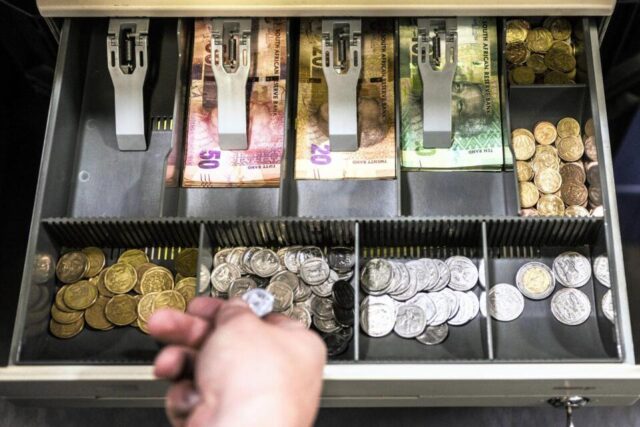MARKETS ON MONDAY: South African equity prices continued their negative trend of August during the first two weeks of September, writes economist Chris Harmse.
South African equity prices continued their negative trend of August during the first two weeks of September. Most share indices on the JSE ended last week negatively.
The marginally better than forecast economic growth rate of 0.6% during Q2 did not affect markets as a weak figure was expected and was already discounted for by the equity market.
The ALSI ended the week 1.06% lower and for the month to date has already lost 2.2%. The index is now only 556 points or 0.8% higher than at the beginning of the year.
The resources board continues to record big losses. The Resources 10 index decreased by 4.03% in the last seven trading days and is now 22.01% down for the year-to-date (Y-T-D).
The domestic traded sector, namely Financials, remained strong over the year, but also contracted last week.
The Fin15 index, on the back of the weaker rand, subsided by 3.2% last week and lost 3.5% over the last month. The index, however, remains 7.1% higher for the Y-T-D. Industrials also continue to lose much ground.
The Ind 25 index traded 1.9% in the red last week and lost more than 4.0% over the last month but remains 12.5% in the green for the year.
On the capital market the All-Bond Index (ALBI) Fuel prices in South Africa remain under pressure. Despite the sharp increase in the prices for diesel, at R2.84 cents per litere, and petrol by R1.71 last week, both fuels remain under recovered.
On Friday the price for diesel, since the latest adjustment, already was under recovered by R2.86 cents per litre, and that for petrol by R1.64 cents per litre.
On Friday the rand/$ exchange rate was 25 cents a litre higher than the average of last month at R19.12/$ and the Brent oil price traded at $90.65 per barrel.
The rand exchange rate also continues to depreciate almost every week since the Monetary Policy Committee had their last meeting in July.
The currency had depreciated against the US$ with 166 cents from R17.54/$ to R19.20/$ since the previous meeting of the MPC up to 6 September 2023.
This sharp decline poses the biggest risk on the repo rate decision at this stage. The MPC’s next meeting will be next week from 19 to 21 September 2023.
In the US, equities slowly started to gain some positive ground last Thursday and Friday, but over the last week and month, the three main indices remained weak.
The Dow Jones Industrial index last week traded down by -0.8% and -1.6% over the month, but is still 4.5% for the Y-T-D.
The broader S&P500 index lost -1.6% for the week, is down by -0.2% over the last month, but is still up by 16.6% from the beginning of the year. The tech equity board index the NASDAQ lost – 2.6% last week, is up by 0.4% over the last month, and still very strong for the Y-T-D gaining 32.5%.
US stock markets awaits the crucial next meeting of the Federal Reserve’s Open Market Commission (FOMC) announcement on interest rates next Wednesday.
This coming week, no important economic indicators will be released for South Africa. Markets this coming week awaits the release of the US inflation and core-inflation rate on Wednesday.
The consensus is that US core inflation will drop from 4.7% in July to 4.5% in August (year-on-year) and the inflation rate to have increased from 3.2% in July to 3.4% in August. These expected rates may increase pressure on the FOMC to raise interest rates next week.
The UK will announce its unemployment rate for August on Wednesday. The US crude oil stock change data will also be released on Wednesday. The stock has decreased by more than 30 million barrels over the last three weeks, and it is expected that another 6 million barrels lower number for the week will be announced. This depleting stock is one of the main reasons for the sharp increases in oil prices world-wide.
On Thursday, the US will release its retail sales data for August. It is expected that the annual sales at shop level have increased only by 0.2%.
* Chris Harmse is the consulting economist of Sequoia Capital Management.
– BUSINESS REPORT








